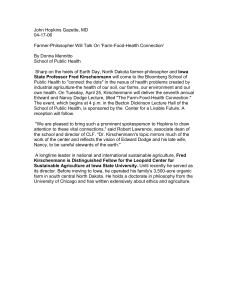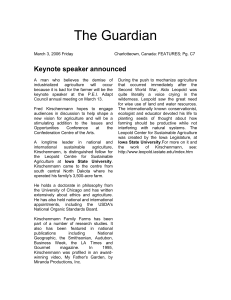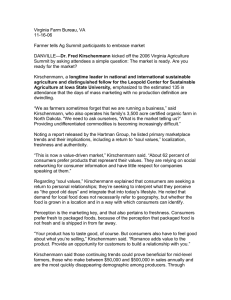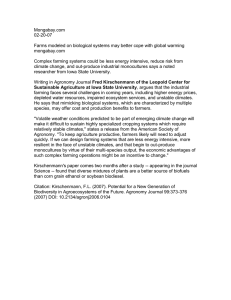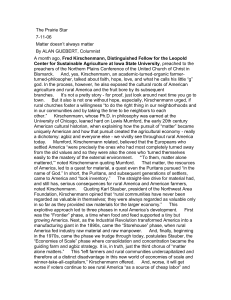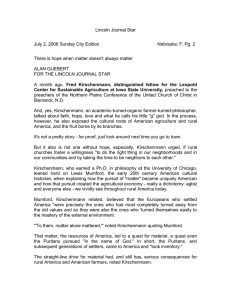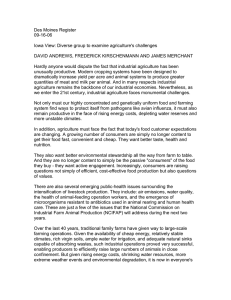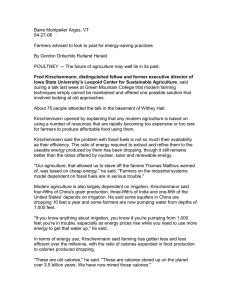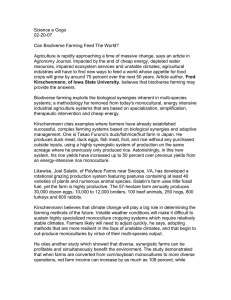Harrisonburg Daily News Record, VA 12-10-07
advertisement
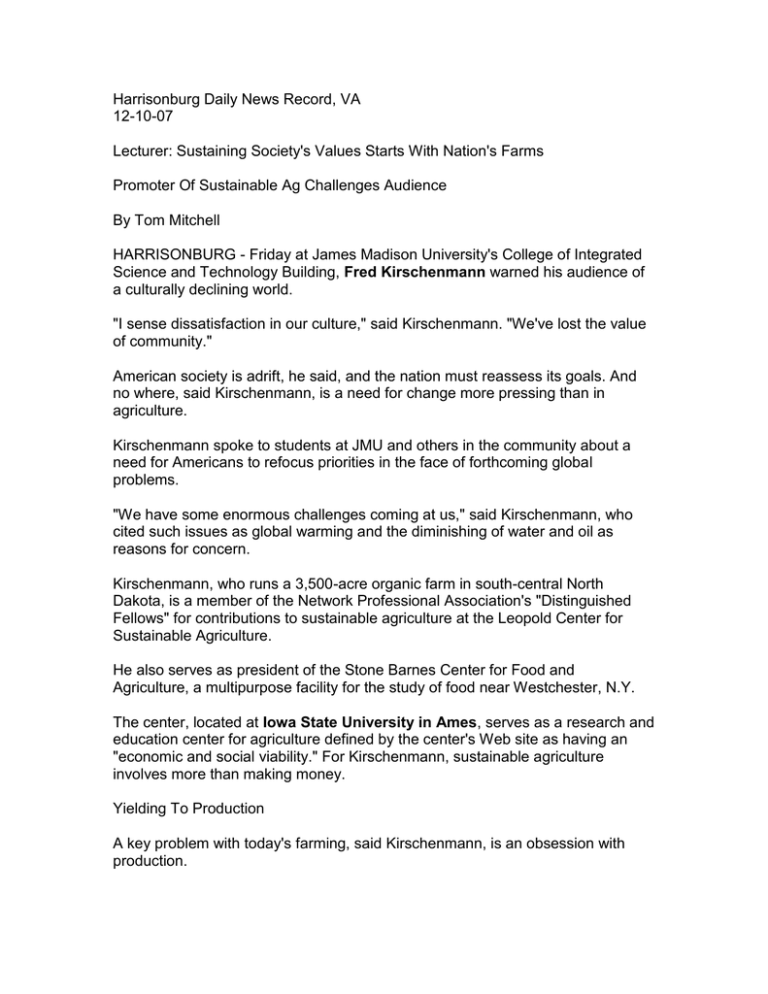
Harrisonburg Daily News Record, VA 12-10-07 Lecturer: Sustaining Society's Values Starts With Nation's Farms Promoter Of Sustainable Ag Challenges Audience By Tom Mitchell HARRISONBURG - Friday at James Madison University's College of Integrated Science and Technology Building, Fred Kirschenmann warned his audience of a culturally declining world. "I sense dissatisfaction in our culture," said Kirschenmann. "We've lost the value of community." American society is adrift, he said, and the nation must reassess its goals. And no where, said Kirschenmann, is a need for change more pressing than in agriculture. Kirschenmann spoke to students at JMU and others in the community about a need for Americans to refocus priorities in the face of forthcoming global problems. "We have some enormous challenges coming at us," said Kirschenmann, who cited such issues as global warming and the diminishing of water and oil as reasons for concern. Kirschenmann, who runs a 3,500-acre organic farm in south-central North Dakota, is a member of the Network Professional Association's "Distinguished Fellows" for contributions to sustainable agriculture at the Leopold Center for Sustainable Agriculture. He also serves as president of the Stone Barnes Center for Food and Agriculture, a multipurpose facility for the study of food near Westchester, N.Y. The center, located at Iowa State University in Ames, serves as a research and education center for agriculture defined by the center's Web site as having an "economic and social viability." For Kirschenmann, sustainable agriculture involves more than making money. Yielding To Production A key problem with today's farming, said Kirschenmann, is an obsession with production. Through the years, an emphasis on larger harvests caused farmers to use environmentally riskier methods, such as pesticides and other chemicals, to grow food. The price for such shortcuts, he adds, are foods of inferior taste and nutrition. And, the use of corn, rice, soybeans and wheat in so many foods, leaves consumers with edibles of limited flavor, said Kirschenmann. "Many people today are unhappy with the quality of food they have," he said. Problems with food reflect a waning of old-style values driven by a pursuit of profit and products, Kirschenmann adds. "Our economy is based on commodities and not on the quality of life," he said. Many in attendance shared Kirschenmann's concerns. Eric Bendfeldt, area specialist for community viability with Virginia Cooperative Extension's Northwest District, said that "we all have to try to enhance the quality of life for farms and families." Kenner Love, extension agent from Rappahannock County, said that quality of life includes communities' dealing with such subjects as childhood obesity. "It's all tied to a lifestyle," Love said. Strength In Numbers John Eckman of Staunton, executive director for the Valley Conservation Council, thinks communities like those in the Shenandoah Valley must join with neighboring localities to tackle tough problems. "We have to face global challenges with regional solutions," Eckman said. Adam Campbell of Harrisonburg also had a great interest in Kirschenmann's message. Campbell is assistant project manager for Friendly City Food Cooperative, which is being formed in the central Valley. "Change is coming, but I feel very optimistic," Campbell said. "We can envision a better future than what we have right now." Contact Tom Mitchell at 574-6275 or mitchell@dnronline.com
